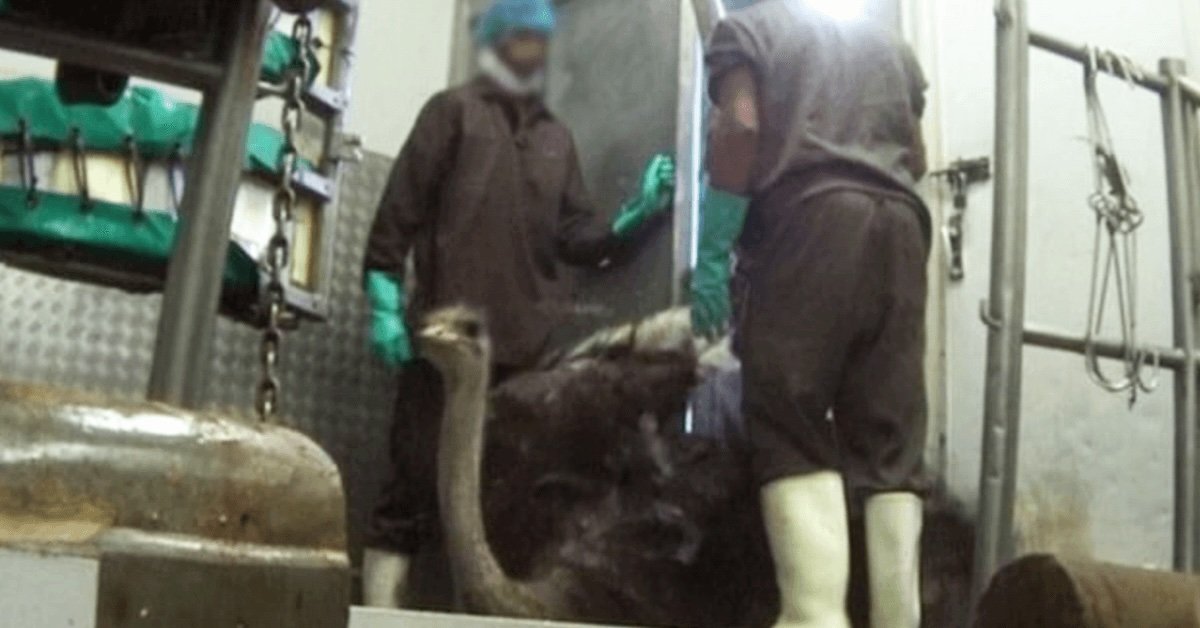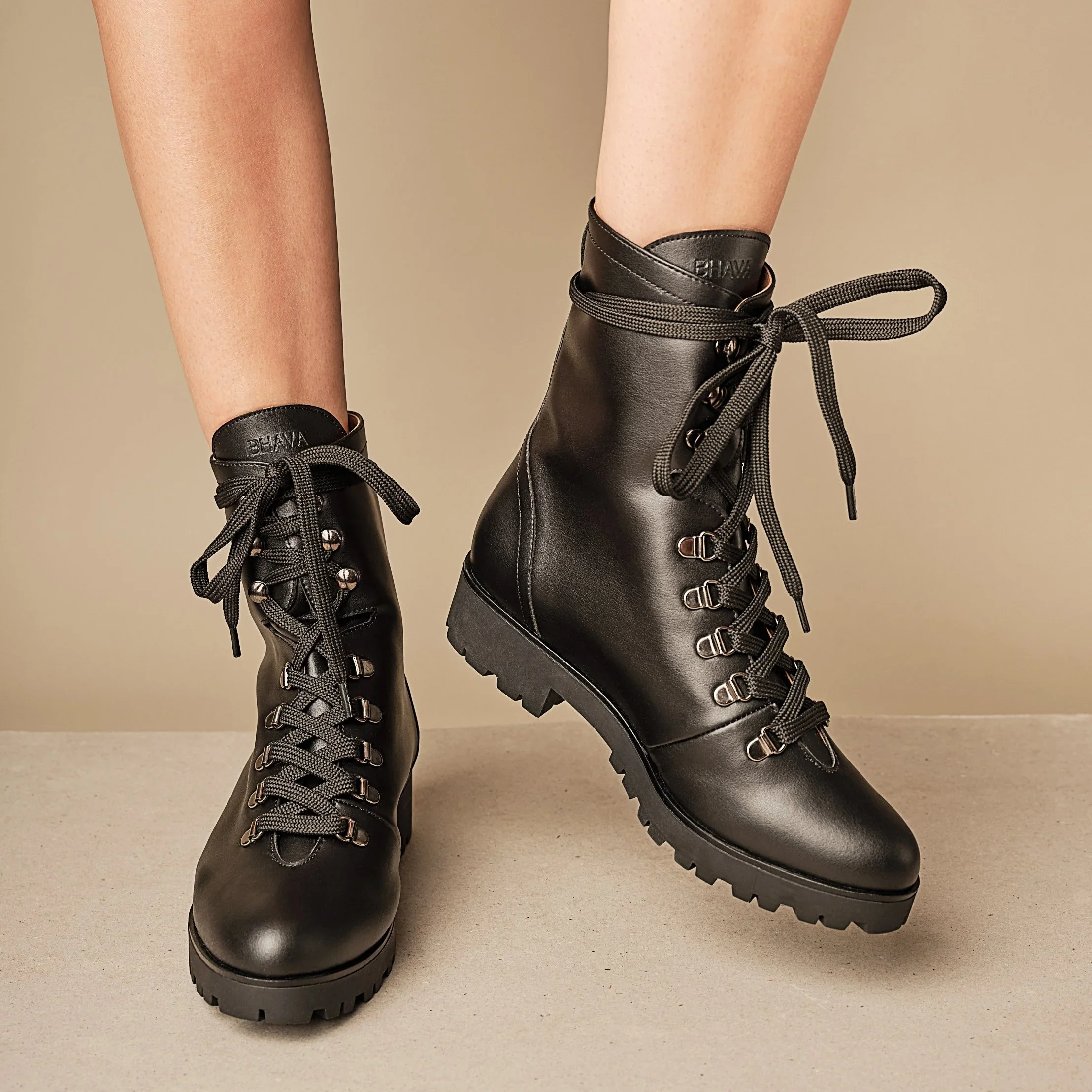Marc Jacobs bans reptile and ostrich skins
The luxury fashion company has joined the growing number of brands shunning exotic skins for ethical reasons, following undercover investigations that uncovered widespread animal welfare violations.
Marc Jacobs is to stop selling the skins of ostriches and reptiles such as crocodiles, lizards, ostriches, and snakes in its collections.
The move comes after pressure from People for the Ethical Treatment of Animals (PETA). The animal rights organization shared undercover investigations with the luxury fashion company that revealed the conditions and killing methods used by the exotic skins industry.
Marc Jacobs joins a growing list of luxury designers and retailers, including Chanel, Burberry, Karl Lagerfeld, and many more, that have also banned the use of skins from reptiles and other wildlife.
“Behind every ostrich- or reptile-skin handbag was an individual who endured a life of misery, pain, and filth before being hacked to bits,” said Laura Shields, PETA Director of Corporate Responsibility. “PETA applauds Marc Jacobs’ compassionate decision to cut ties with this cruel industry and urges designers everywhere to follow its lead.”
According to PETA, animals used in the exotic skins industry are forced to live in appalling conditions before they’re electroshocked, bludgeoned, or even skinned alive to be used in luxury handbags, belts, wallets, and other fashion items.
Multiple exposes by the nonprofit have documented how workers in the fashion industry inflate live snakes, bash them over the head with hammers, and slice them with razors; hack at crocodiles’ necks and shove metal rods into their heads; chop off conscious lizards’ heads with machetes.
Meanwhile, ostriches, whose skin is used for high-end accessories with a dotted texture, are commonly killed when just a year old. They are put into an electric stunner before their throats are slit in full view of their flockmates.
Credit: PETA Asia
This is just the latest promising development in the fight against exotic skins. Copenhagen Fashion Week made headlines last month by declaring a ban on exotic skins and feathers for its 2025 catwalks, marking the largest industry event to take such a stance.
“Skål to Copenhagen fashion week for raising the bar for other events,” said Yvonne Taylor, the vice president of corporate projects at PETA. “Now all eyes are on other fashion week organizers, who must follow suit.
“It really does prove to me that these organizations – fashion weeks, potential brands – can take these big steps when pushed,” said Fair fashion campaigner Venetia La Manna, whose organization consulted with Copenhagen Fashion Week alongside World Animal Protection to persuade them to enact this policy.
Despite the progress, multiple fashion houses, brands, and designers, continue to profit from exotic skins. Last year, Pharrell Williams came under fire after releasing the $1 million Louis Vuitton Millionaire Speedy bag made from crocodile skin.
Credit: PETA Asia
The trade of crocodiles, alligators, lizards, and pythons, whether live or as skins, is regulated by CITES (the Convention on International Trade in Endangered Species of Wild Fauna and Flora). CITES monitors products from animals under threat of extinction, tracking their origins and cross-border movements among countries.
However, this regulation focuses only on monitoring the number and species of animals traded and does not address the inhumane methods of rearing and killing used in the industry.
Loopholes in the trade also persist, with nearly 200 shipments of reptile leather seized at the US border, mostly linked to large luxury houses, between 2016 and 2022.
Last month, handbag designer Nancy Gonzalez was sentenced to 18 months in prison for smuggling handbags made from the skins of protected wildlife into the United States from Colombia, sending shockwaves through the luxury exotic skins industry.
Prosecutors said that the handbags and purses, made from the hides of caiman alligators and pythons bred in captivity, were worth as much as $2 million. Although the trade in caimans and pythons is not banned, it is regulated by CITIES According to prosecutors, Ms. Gonzalez never secured the required import permits from the U.S. Fish and Wildlife Service.
Take Action Now
Species Unite is calling on Louis Vuitton to join the modern age of compassionate fashion by committing to stop supporting the torture of crocodiles and the use of exotic skins. Please add your name and join us in condemning this practice and asking Pietro Beccari, CEO of Louis Vuitton, to do the right thing.
We Have A Favor To Ask…
Species Unite amplifies well-researched solutions to some of the most abusive animal industries operating today.
At this crucial moment, with worldwide momentum for change building, it’s vital we share these animal-free solutions with the world - and we need your help.
We’re a nonprofit, and so to keep sharing these solutions, we’re relying on you - with your support, we can continue our essential work in growing a powerful community of animal advocates this year.






